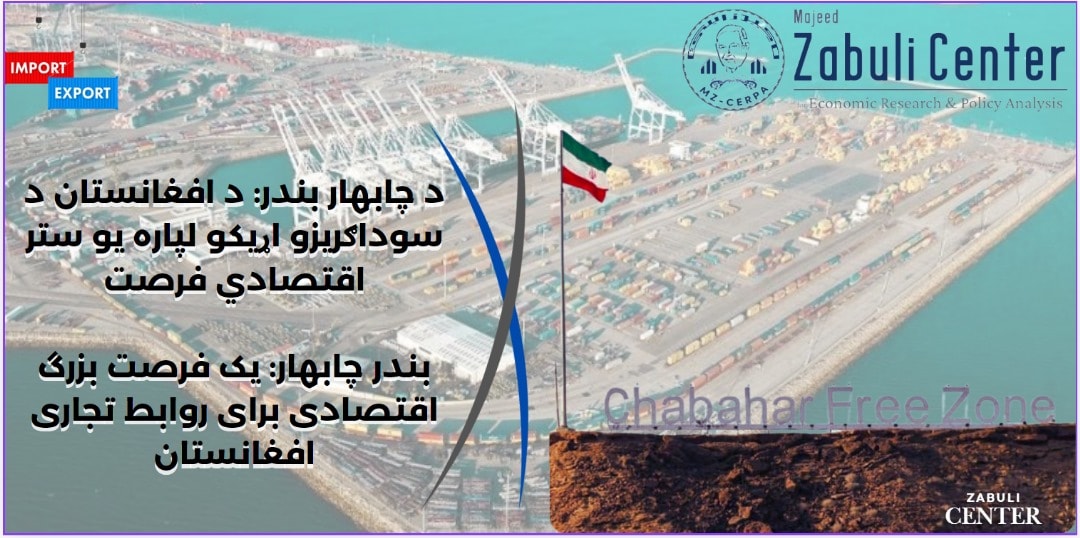19 Jan,26
Most Searched Keywords
04 Aug
Chabahar: A Major Economic Opportunity for Afghanistan’s Trade Relations

The Chabahar port holds great potential for enhancing Afghanistan’s economic and trade ties with regional countries. Although it is considered a strategic economic opportunity for Afghanistan, the country has not yet been able to fully benefit from this port.
The caretaker government of Afghanistan has repeatedly requested Iranian authorities to provide the necessary facilities for Afghan traders at Chabahar so that trade volume can increase. This port offers Afghanistan an important alternative trade route that could help Afghan traders overcome long-standing challenges they have faced at the Karachi port.
Recently, the president of Iran and the prime minister of India met on the sidelines of the BRICS summit and discussed the significance of the Chabahar port. The aim of their discussion was to take joint action toward equipping and developing Chabahar, which could play a crucial role in Afghanistan’s development and reconstruction. India has pledged $120 million for port equipment and over $250 million in transport infrastructure, which will strengthen trade ties between Afghanistan and the region.
Despite the port’s significance, the lack of infrastructure projects and road-related issues between Nimroz and Chabahar remain major transportation challenges. These issues have prevented Afghan traders from systematically benefiting from the port. Iranian officials have repeatedly stated that the road from Nimroz to Chabahar will be expanded and developed, but no practical progress has been observed so far.
Addressing the security and technical issues of this route is essential. Constructing a railway line in this corridor would be economically beneficial for Afghanistan. It would not only facilitate trade for Afghan traders but also expand the country's regional trade relations.
In conclusion, the Chabahar port is a key opportunity for strategic cooperation between Afghanistan, Iran, and India. Its development and modernization would not only bring economic advantages to Afghanistan but also open a new chapter in its regional and global trade relations.
